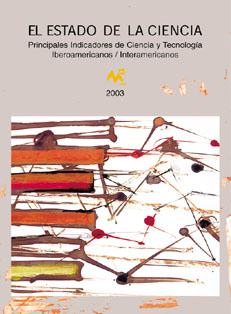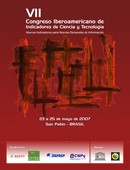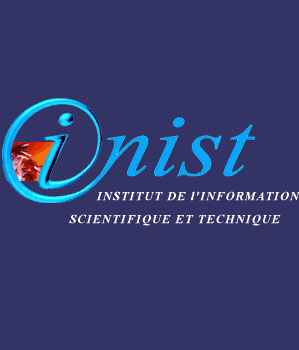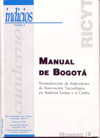Between the activities programmed for 2004, the Network on Science and Technology Indicators –Ibero-American and Inter-American- organized the Central-America Seminar-Workshop on Science and Technology Indicators with a gender approach. The meeting took place in June 10 and 11, 2004, in San Salvador , El Salvador . It was aimed at encouraging the elaboration of Science and Technology indicators in the region, under a gender-centred perspective.
There were present many representants of Science and Technology, as:
José Roberto Alegría Coto, Departamento de Desarrollo Científico y Tecnológico (CONACYT) El Salvador; Guillermo Godínez, Consejo Nacional de Ciencia y Tecnología (CONCYT) Guatemala; Aquiles Díaz Chávez, Consejo Hondureño de Ciencia y Tecnología (COHCIT) Honduras; Miriam Andrea Vigil Rodríguez, Consejo Nicaragüense de Ciencia y Tecnología (CONICYT) Nicaragua; Pilar Trimiño Vásquez, Comisión Nacional de Indicadores de Ciencia y Tecnología/Universidad Nacional, Costa Rica; and Lourdes Palma, Secretaría Nacional de Ciencia y Tecnología e Innovación (SENACYT) Panama.
The meeting was co-organized with the local counterpart of CONACYT, and it was supported by OAS and OEI. María Elina Estébanez (researcher from Centro REDES, Argentina ) coordinated the meeting, in representation RICYT .
In the framework of the Project “Toward the construction of a system for science, technology and innovation indicators”, supported by the Organization of American States (OAS), Network on Science and Technology Indicators –Ibero-American and Inter-American- ( RICYT /CITED) has programmed a series of activities aimed at applying a gender approach to the construction of indicators in the region. As a part of these activities, it was performed the first sub-regional meeting, intended to begin the reflection about methodological alternatives and posibilities for the construction of science and gender indicators. The meeting took place in San Salvador , El Salvador , June 10 and 11, 2004, and was co-organized with the local counterpart of CONACYT. The meeting, titled Seminar-Workshop on Science and Technology Indicators with a gender approach, had the support of OAS and the Organization of Ibero-American States (OEI).
> Information about the seminary
> Seminar report
Seminar presentations
>Indicadores de Ciencia y Género en la RICYT
>Situación de la ciencia y la tecnología en América Latina
>Panorama de la participación de la mujer en las actividades de investigación y desarrollo en la región iberoamericana – interamericana
>Panamá: Indicadores de Actividades de Ciencia y Tecnología con Enfoque de Género
>Costa Rica: Indicadores de Ciencia y Género
>Costa Rica: Indicadores de Ciencia y Género. Análisis de datos
>Nicaragua: Situación del acceso a la información desagregada por sexo
>Honduras: Análisis y datos desagregados estadísticos sobre la mujer
>Guatemala: Situación de la Ciencia y la Tecnología a partir de Indicadores Básicos
>El Salvador: Indicadores de ciencia y tecnología bajo un enfoque de género
>El Salvador: Situación de la ciencia y la tecnología a partir de indicadores básicos: en Sistema Nacional de Innovación
Documents on science and gender indicators
>Estado de la Ciencia 2003
>Estado de la Ciencia 2002
>Desarrollo metodológico para la inclusión de la variable género en la construcción de indicadores – Dra. Tatiana Láscaris Comneno
>Desarrollos metodológicos para la inclusión de la variable género en la construcción de indicadores de Ciencia, Tecnología e Innovación en la región Iberoamericana-H.Vessuri, M.V. Canino, M.Rausell



